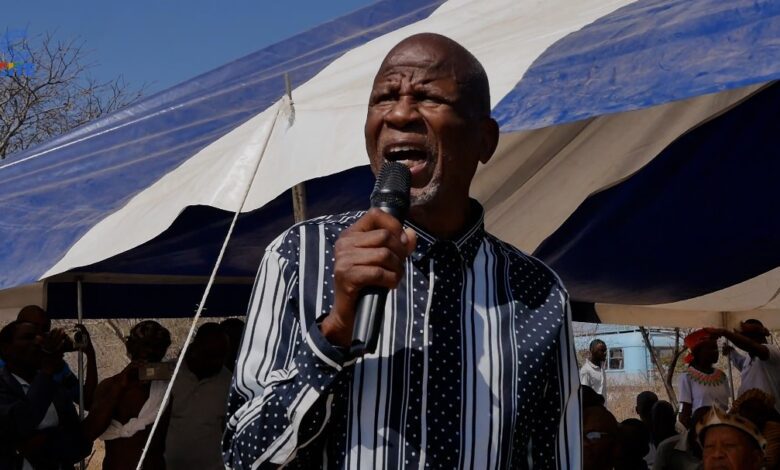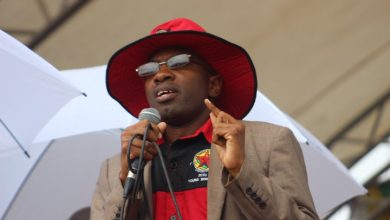‘Lets have more events to promote Ndebele culture’

Renowned historian, poet, playwright, and biographer Pathisa Nyathi, has advised organisers of the King Mzilikazi commemorations to have a series of activities in the run-up to the main event in order to promote the Ndebele culture and language.
Ever since their inception, the King Mzilikazi commemorations have been hosted just for one day.
Nyathi said there was also a need to have workshops that would teach isiNdebele, particularly to upcoming poets who are supposed to deliver praise poetry that celebrates King Mzilikazi.
His sentiments come after observing that modern poets are failing to recite Ndebele poems.
“Let’s not have one day to commemorate King Mzilikazi, but have a build-up of activities so that children are taught history, while poets are also taught how to do recitals because these modern poets are not hitting the mark,” he said at the King Mzilikazi Commemorations held Saturday at Mhlahlandlela.
Nyathi said it was important that veteran poets take time to teach the young ones.
“Today we see poets jump and down, no! That is not the way to do a recital, one praises with their mouth, not with their arms or legs,” said the cultural enthusiast.
“We will try to have workshops and offer books to read, where experts can teach. It is important to have such programmes.”
The historian emphasized that the commemorations were crucial as they gave people an identity and encouraged the Ndebele to embrace their culture, language and traditional dress.
“What makes us honour Mzilikazi is he formed the Ndebele nation, gave us a culture, which is hated by others, who when they look at some practices are embarrassed and feel humiliated. Mthwakazi must not be embarrassed to be Mthwakazi, it’s not a crime,” Nyathi said.
“You didn’t give birth to yourself, you were born, originating from Mthwakazi. When you were born, you were given a language, customs, traditions and attire so we must preserve our customs.”
He also gave a brief background of Mhlahlandlela, saying it was run by Gwabalanda, uMathe, uMhlanga Ndlovu.
“In 1861, Queen Loziba relocated from Inyathi, Emhlangeni and resettled here where she established her household. At that time, other queens had left this place though there were still some who had given birth to Mzilikazi’s young sons Mahlahleni, Khwelambila, Nyanda born from latter households,” he said.
“Mhlahlandlela was Mzilikazi’s last kraal, the first one was next to Pretoria, at Mashambazhou but he ended here in 1863. Mzilikazi died on September 5, 1868 at Enqameni. He was brought here at Mhlahlandlela as a corpse but was not buried for two months because culturally, kings are not buried underground but are laid to rest in caves.”
Nyathi added that King Mzilikazi was celebrated in two parts.
“The first celebration is done in secret; we hope it was done the previous day. Today (Saturday) is a day of rejoicing, singing, dancing, eating meat and delivering praise poetry,” said the historian.
Nyathi also urged the Ndebele people to create their own King Mzilikazi monument, as the existing one, emblazoned with the king’s totems was built by the Whites in 1945.
“As a nation, what have we done? Let us build our own monument,” he urged, noting that such honours should be extended to Mzilikazi’s wives as well, including that of Lobengula.
“We don’t know much about the history of their wives yet some are buried in Bulawayo.”
Nyathi noted that the graves of some historical figures were unknown yet that history should be unravelled.
“Some have said they don’t know where the grave of Mtshane Khumalo is. His grave is at Ngome inside the mountains,” he disclosed.
General Mtshane Khumalo commanded the Imbizo Regiment, under King Lobengula, that defeated the Allan Wilson Patrol at the Battle of Pupu on December 10, 1893.
“If we are not careful his grave will be washed away by the water because it’s next to Thuli river. Let’s know where our historical figures are resting and mark those points to educate future generations. We must also look for their wives’ graves, mark them now while the elderly are still alive otherwise this history would be lost from us”
The historian advised that even when chiefs are sworn in, their background history must be written down so that they and communities can know the history of their ancestors.
Another cultural enthusiast, Timoh Mabhena from Imvuselelo Yolimi Lamasiko EsiNdebele Trust, echoed Nyathi’s sentiments on the need to teach communities on isiNdebele.
“We meet once a week as an organisation to discuss what needs to be done to preserve Ndebele culture and language. Anyone who needs assistance on this, can contact me on 0755369351,” he said at the commemorations.





